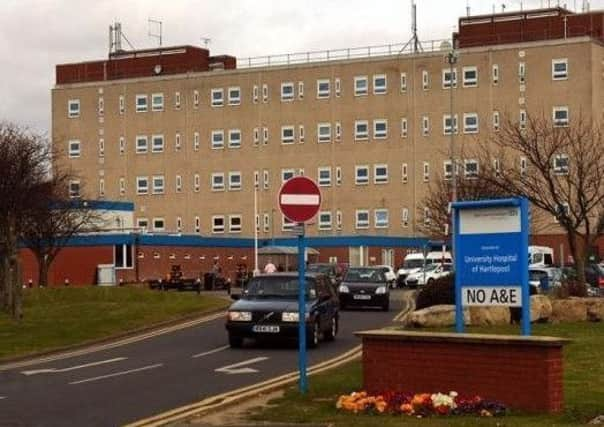'˜Growing problem' of false fire alarms hit hospitals more than once a week in Hartlepool and Stockon


Figures from NHS Digital show there were 84 false alarms in the 12 months to March - the equivalent of 1.6 a week.
False alarms are a growing problem which are costing “thousands of staff hours” every year, according to the National Fire Chiefs Council (NFCC).
Advertisement
Hide AdAdvertisement
Hide AdBut hospital trust chiefs say they have a fire team which responds 24/7 to make an initial assessment of any fire alarm and out of a total of 84 alarms, Cleveland Fire Brigade were called on only nine occasions.
A spokesman for the trust, which runs the University Hospital of Hartlepool and the University Hospital of North Tees, said: “Fire safety is taken extremely seriously in all of our buildings. To safeguard patients and the public, the fire safety standards in hospitals require a much greater number of detectors than would be required in most other buildings. All staff have regular fire safety training and there is a robust fire alarm activation investigation process in place. The Trust fire team responds 24/7 to make an initial assessment of any fire alarm activation event to determine if the fire brigade is actually needed.
“This investigation process has been very successful and has significantly reduced the number of calls to the fire brigade. Out of a total of 84 alarms, in the 12 month period, the brigade were called on nine occasions following assessment by the Trust fire team.
“There are also a number of improvements being carried out to help further improve fire safety, including the replacement of the fire alarm system at the University Hospital of North Tees. This will provide us with a modern and efficient fire detection system that is anticipated to further minimise the number of false alarms.
Advertisement
Hide AdAdvertisement
Hide Ad“We would like to remind anyone in the hospital buildings – staff, patients or visitors – to be mindful of the sensitivity of fire alarms. Items such as aerosol sprays can trigger alarms and cause unnecessary disruption to busy clinical areas.”
Paul McCourt, from the NFCC, said: “False fire alarm activations cause huge problems for the NHS and the fire and rescue service,” he said.
“Every year thousands of staff hours are lost due to false alarms and Unwanted Fire Signals.
“This affects both fire and health service delivery, business continuity and patient care.”
Advertisement
Hide AdAdvertisement
Hide AdAcross England, the number of times firefighters were called to false alarms at NHS trusts rose by 8% last year from 6,533 in 2016-17 to 7,065 in 2017-18.
False alarms overall have risen by 12% in five years.
The majority of alarms are caused by automatic systems, which may summon the fire service as soon as they activate.
Most are caused by faulty, damaged or badly maintained systems, or things such as burnt toast, steam or dust.
A spokeswoman for NHS Improvement said: “All NHS hospitals take fire safety seriously.
Advertisement
Hide AdAdvertisement
Hide Ad“This includes following national fire safety regulations which require them to maintain their automatic fire detection systems.
“We would expect all NHS trusts to put measures in place to minimise the number of false fire alarms, while ensuring the safety of patients and staff.”